After examining 60 underprivileged patients, including children with congenital deformities or musculoskeletal disorders, doctors from Viet Duc Friendship Hospital and a team of U.S. specialists successfully performed 10 complex surgeries in Yen Bai Province.
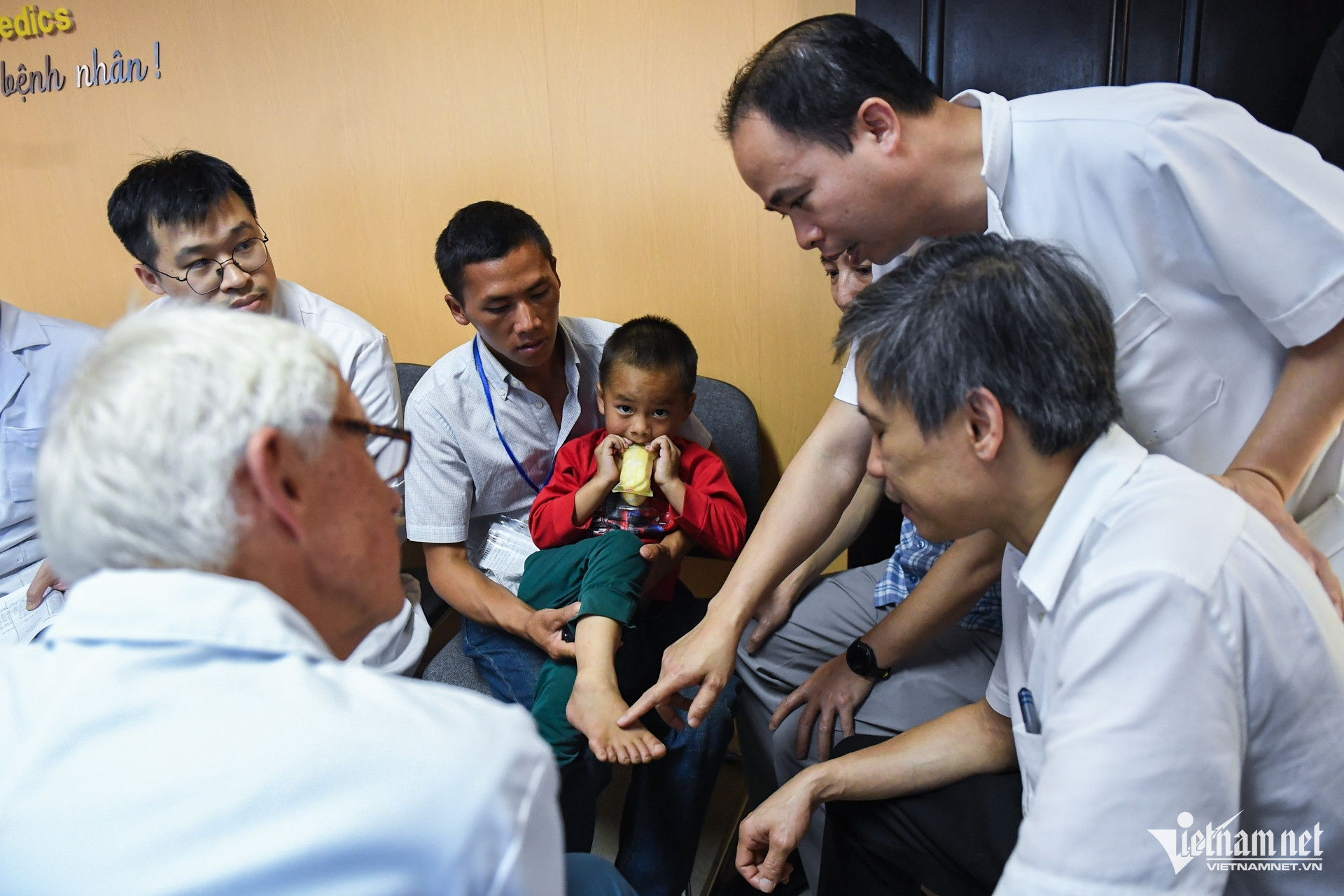
At 9 a.m. on an early June morning, the atmosphere at Yen Bai Provincial General Hospital was livelier than usual. Dozens of doctors from Viet Duc Hospital (Hanoi) and a team of American medical experts gathered for a humanitarian medical mission coordinated by Sala Charity Club. The team came to offer free medical exams and surgeries for patients from highland areas.
The sixth floor was designated as the exam site. News of the visiting specialists had spread days in advance, drawing long lines of patients waiting patiently outside.
One patient, a young girl named Vy Gia Tuyen, had been admitted the previous afternoon after falling off her bicycle on a gravel-covered road near her home in Bao Yen District, Lao Cai. At first, the pain seemed mild, but within ten minutes her left arm began throbbing severely and bled continuously from a two-centimeter open wound. Her mother, Truong Thi Luat, rushed her to a local clinic for first aid. Seeing the severity of the injury, doctors transferred her to Yen Bai for further examination.
“As soon as we arrived, the doctors informed us about a visiting team of specialists who would be performing surgeries the next morning. We registered immediately,” Tuyen’s mother said.
Tuyen’s case was swiftly assessed by Dr. Jacob from the U.S. team and the Vietnamese doctors. “This is a serious fracture that requires urgent surgery. We’ll operate after the morning examination session,” Dr. Jacob concluded.
Many patients suffered from congenital issues such as polydactyly or knock-knees, while others had shoulder injuries or hip dislocations. Nearly 60 patients were examined in a single morning, with many added to the list on the spot without the usual paperwork. Two consultation tables were constantly surrounded by patients and their families.
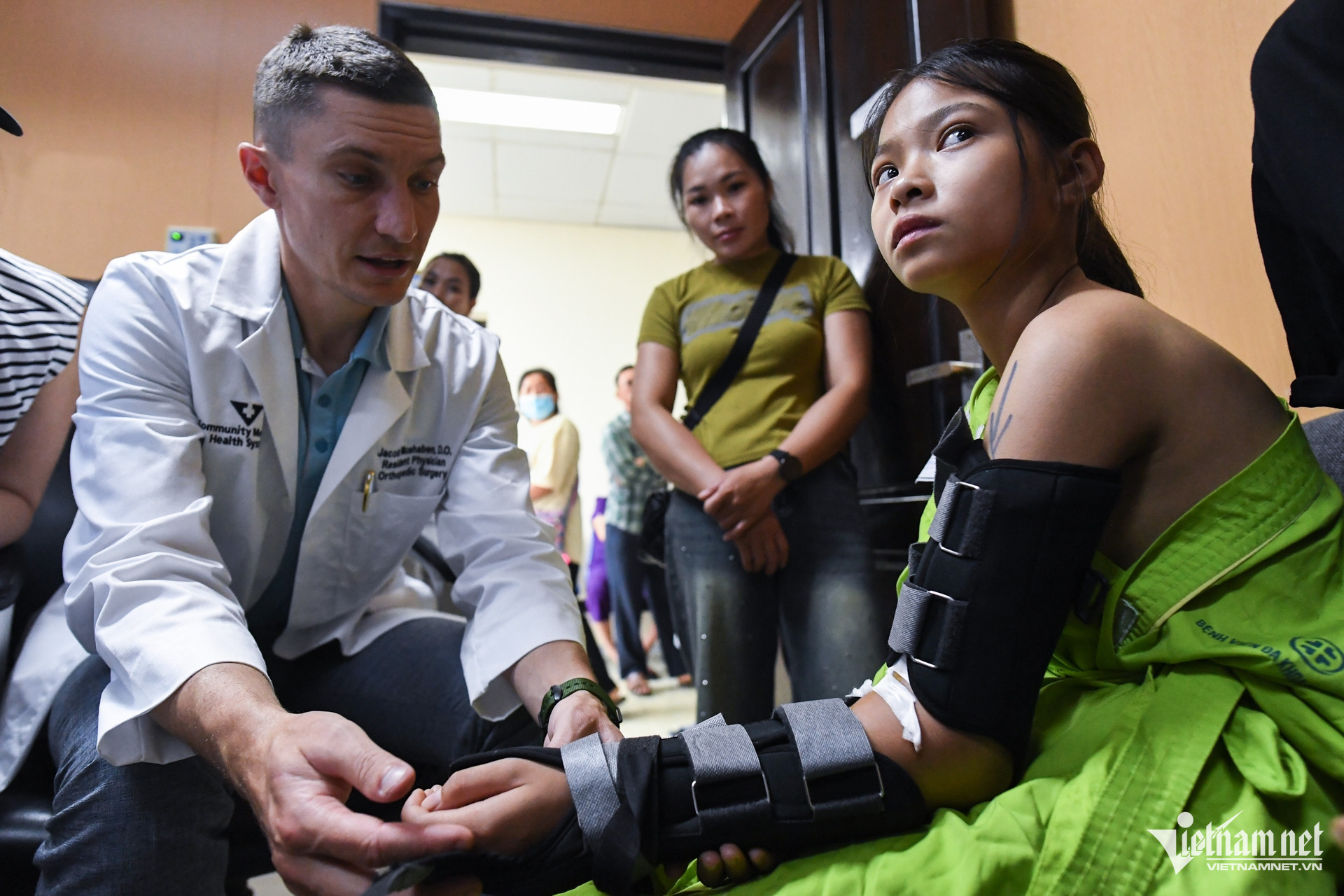
Outside the exam room, Ly Thi My, an ethnic H'Mong woman, waited with her 8-year-old son Sùng A Tiep on her back. She said they traveled over 200 kilometers from Bat Xat District (Lao Cai). “Our village teacher told us about the doctors’ visit, so my husband and I left our farm to come here,” she explained.
The couple rode a motorbike to Lao Cai City, then took a bus to Yen Bai - an exhausting full-day journey. Their hope was to find a cure for their son, who began weakening after a mysterious illness two years ago. Now, even basic movements like standing or sitting are difficult for the boy.
“Can you try standing up and sitting down by yourself?” asked Associate Professor Dr. Nguyen Manh Khanh, Deputy Director of Viet Duc Hospital and Chairman of Sala Charity Club.
Tiep nodded, slid off the chair, and after struggling for several moments, managed the movement. “Mr. Golden, look. This looks like congenital myasthenia,” Dr. Khanh noted.
The American doctors gathered to re-examine the boy in a more spacious hallway but ultimately shook their heads, concerned. Dr. Khanh gently asked the tearful mother if there was a family history of genetic conditions or consanguineous marriage. She closed her eyes, shook her head, and tears streamed down.
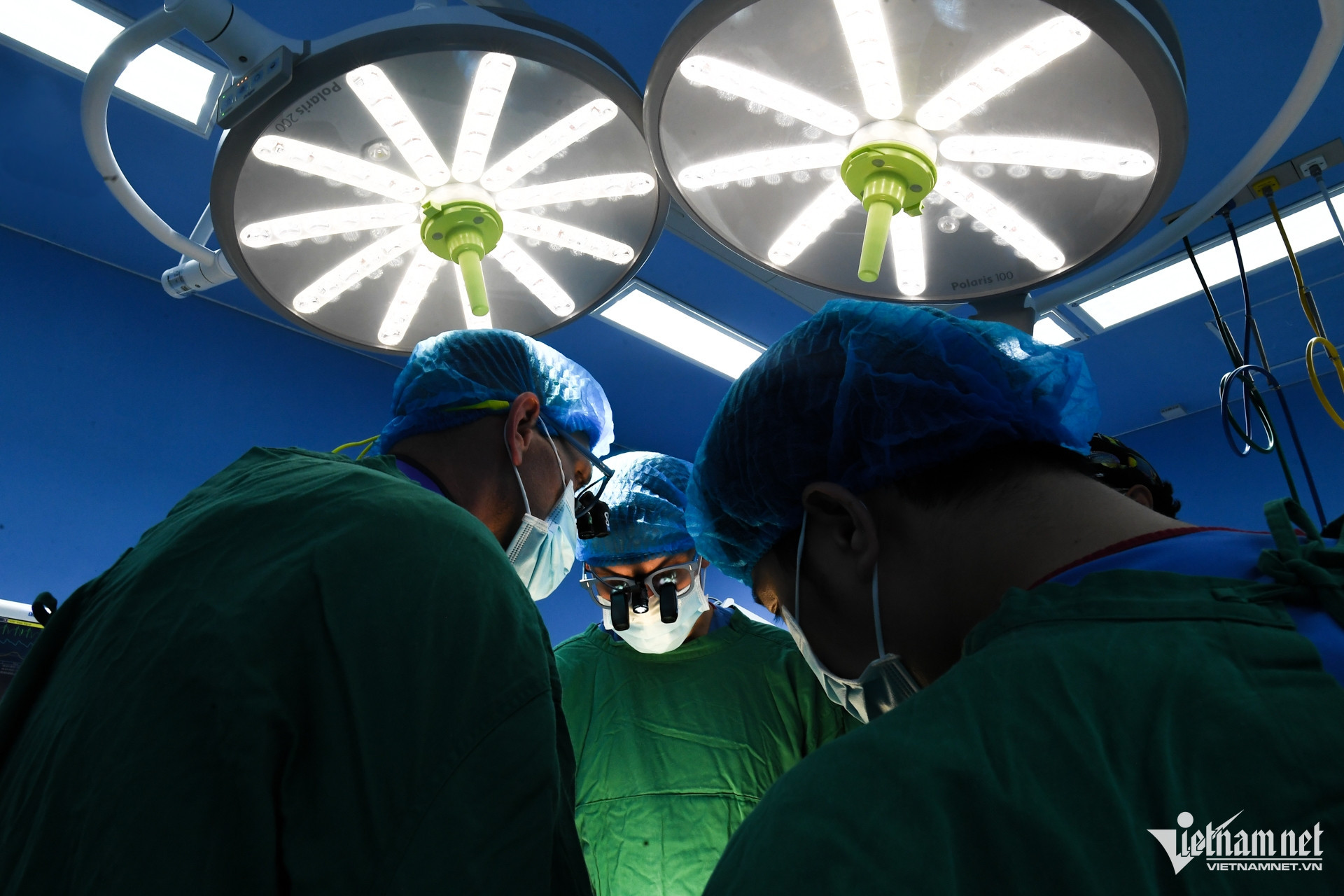
Dr. Khanh later explained that based on symptoms and age, Tiep may have congenital myasthenia, a rare condition caused by recessive gene variants. “I’ve advised the family to take him to the National Children’s Hospital for genetic testing. Hopefully, we’ll find answers,” he said.
Before the family left, Sala Charity Club and Dr. Khanh offered gifts and cash to support their travel.
Most patients from the morning session were scheduled for early surgery. Tiep’s case left the team especially moved, though surgery wasn’t immediately possible.
By noon, consultations concluded and 10 surgeries were scheduled over the next two days. Four were slated for that afternoon, starting with Tuyen’s arm fracture.
At 1 p.m., she was taken to the operating room. The surgery was performed using endoscopy, led by Dr. Joshua S. Gluck from the U.S. team. Once preparations were complete, the first operation began.
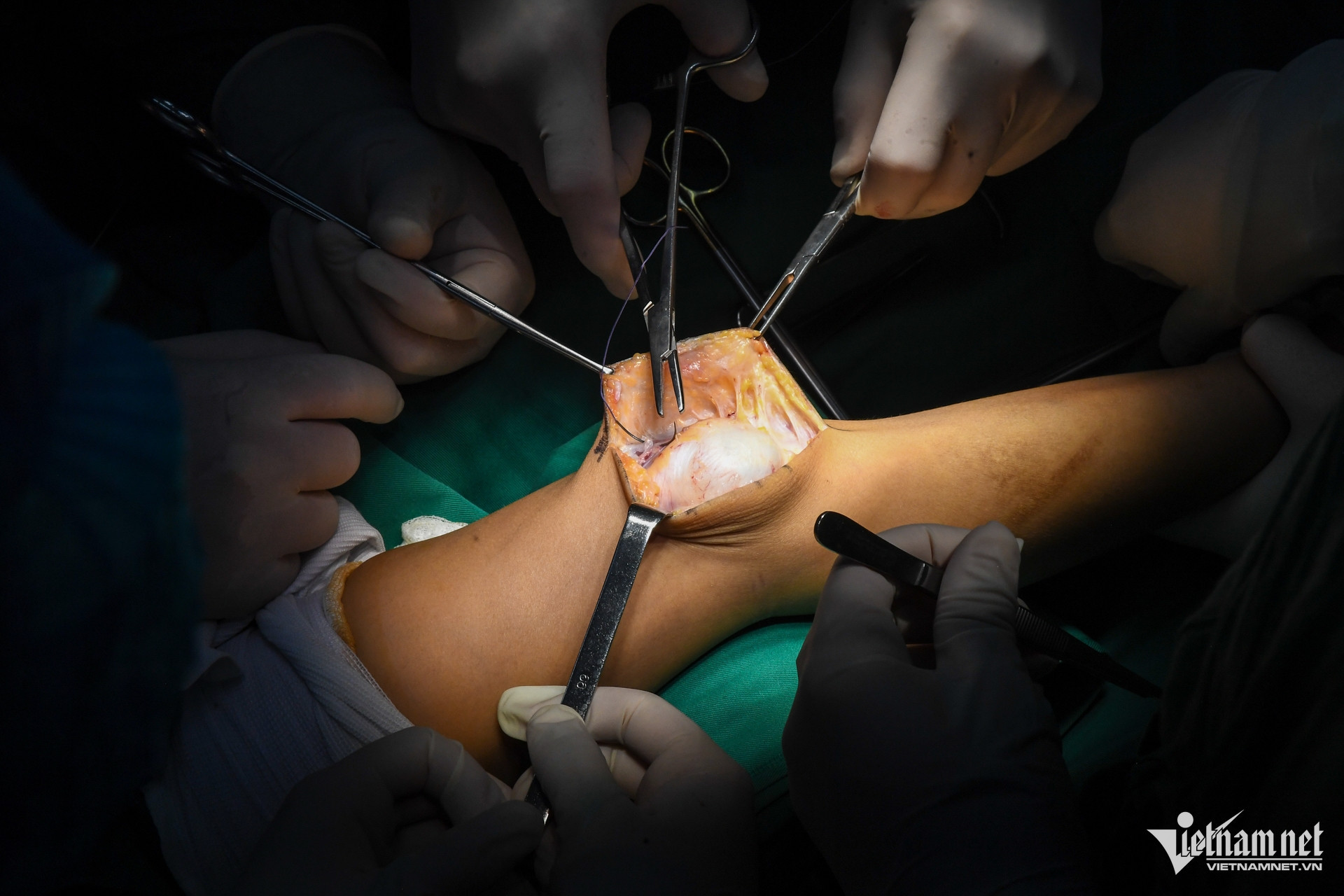
The team split into two surgical units, working continuously. Doctors from Viet Duc and Yen Bai hospitals collaborated, exchanging knowledge and complex techniques throughout the procedures.
Endoscopic surgeries were conducted with stringent protocols. This technique effectively treats joint fractures without open surgery, reducing the risk of stiffness. It allows precise diagnosis of joint, ligament, and cartilage injuries while ensuring better recovery and minimal invasiveness, aided by C-Arm imaging.
In a kneecap dislocation surgery, Professor Thomas Golden explained: “For each case and age, we use different approaches. With young patients, we avoid bone cutting to preserve growth. Instead, we adjust muscles and tendons around the kneecap.”
The surgery lasted two hours and was successful. The boy was moved to recovery with his family.
The operating rooms remained busy, and within just two days, 10 complex surgeries were performed. Dr. Lan Anh, Director of Yen Bai General Hospital, remarked: “As a hospital administrator and doctor, I deeply appreciate the dedication of these colleagues. This goes beyond surgery - it’s about compassion and professional solidarity.”
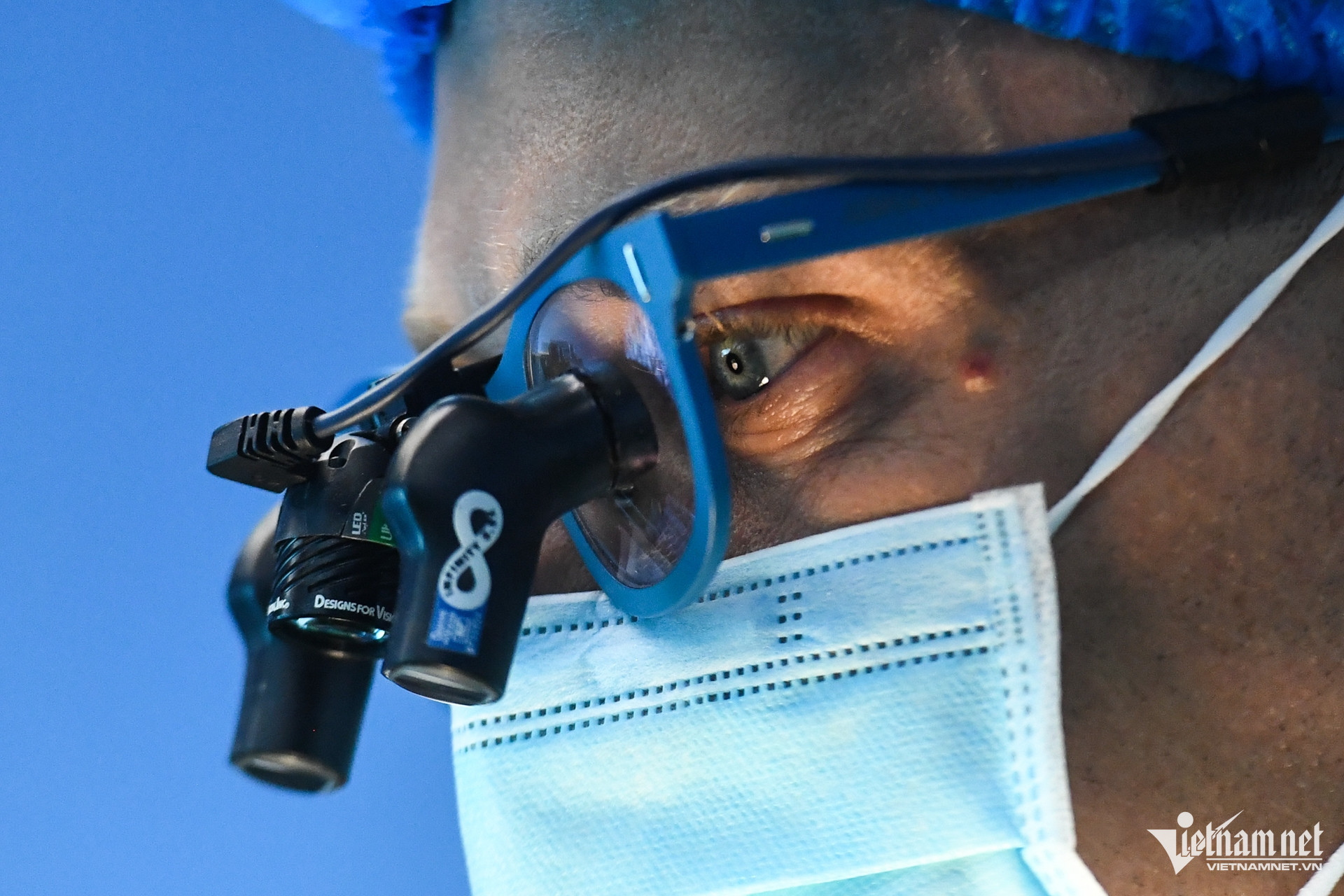
The humanitarian medical program in Yen Bai ran for three days, organized by Sala Charity Club, Viet Duc Hospital doctors, U.S. medical team VietCal, and several supporting organizations.
Over three days, nearly 60 patients - mostly poor children with congenital or musculoskeletal conditions - received examinations. The club also donated gifts and educational tools to underprivileged students and teachers in the region.
Dr. Nguyen Manh Khanh stated: “This humanitarian program by Sala aims not only to bring presents to the people but also to leave lasting impacts through life-changing surgeries and international medical collaboration.”
Thach Thao